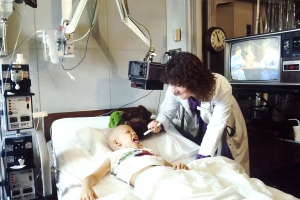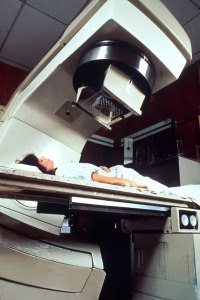What are the side effects of chemotherapy?
Chemotherapy is a common cancer treatment that uses drugs to kill or inhibit the growth of cells [7]. The most common chemotherapy method is one in that the drug causes damage to malignant cells, but healthy cells are also affected by the drug, and therefore it has various side effects. These side effects depend on the type of chemotherapy, dose, pre-existing health conditions, and response to treatment. Being aware of these effects can help individuals and caregivers prepare for and get through the trials of cancer treatment.
What symptoms arise from chemotherapy, and why do they occur?
Chemotherapy agents are specifically created to kill cells that divide rapidly—characteristics of cancer. Yet, some of the dividing healthy cells in this body as its own are those found in bone marrow, digestive tract and hair follicles, as well as the reproductive system. When chemotherapy impacts normal cells like these, side effects result.
Each drug and combinations of drugs have different kinds and intensity of side effects, as do the patients themselves based on their health status. Modern medicine has also developed improved supportive therapies to help ameliorate the negative effects of the harsh chemotherapy, which allows a patient to have a lower impact to quality of life during treatment.
Chemotherapy Side Effects Most Common
However, due to the broad application of chemotherapy, it can lead to symptomology involving multiple body systems. The most common side effects are:
Fatigue
Fatigue, which is one of the most common side effects of chemotherapy, is more than just tiredness—it’s an overall feeling of extreme physical, mental, or emotional exhaustion. Its causes include the cancer itself, which may be exacerbated by chemotherapy through compensatory mechanisms in the organism, or related states such as anemia. Treatment for fatigue may include rest, moderate exercise, proper diet, and other additional causes like stress or poor sleep.
Hair Loss
Alopecia, or loss of hair, happens due to the effect of chemotherapy on hair follicles, which are rapidly dividing cells. The degree of hair loss varies according to the chemotherapy regimen, and it may affect other areas such as eyelashes, eyebrows, or body hair. Although hair loss resolves, it can be traumatic for most people who experience it. The caps are designed to cool the scalp both before and during chemotherapy, which may help curb hair loss, and taking care of your locks as gently as possible might prevent further trauma, too. Support groups or counseling can offer comfort for the emotional toll a diagnosis brings.
Nausea and Vomiting
One of the earliest and most difficult side effects brought on by chemotherapy is nausea and vomiting. The medications can irritate the stomach lining or stimulate parts of the brain that induce vomiting. We have made so many advances with anti-nausea medicines (called antiemetics), which helps to minimize how common or severe these symptoms are. And consuming smaller meals, continuing to hydrate, and staying clear of solid smells or certain foods may also be beneficial.
Changes to the appetite and Putting On Weight
Chemotherapy can lead to loss of appetite, alterations in taste, and even aversions to particular food groups. Others experience a decrease in intake, and this can cause weight loss; however, depending on the reason underlying the problem for a short time, others gain weight (likely due to fluid retention or metabolic changes). Supportive care and collaboration with a nutritionist assist patients in fulfilling dietary requirements and achieving weight maintenance.
Mouth Sores
Mucositis refers to inflammation of the mucous membranes and can cause painful sores in the mouth and throat. The sores make it painful to eat, drink, and speak. Use of mild saline-water rinsing, avoidance of spicy or acidic foods, and oral rinses as prescribed can alleviate this (38).
Increased Risk of Infections
Patients who undergo chemotherapy may be more vulnerable to infections because chemotherapy can suppress the production of white blood cells, which play a key role in fighting off infections. This, called neutropenia, will be short-lived but needs to be monitored closely. Common preventive methods like practicing good hygiene, avoiding crowded places, and seeking a doctor as soon as one suffers from fever or signs of infection can be lifesaving.
Bruising and Bleeding
Chemotherapy can reduce platelets, the tiny blood cells that form clots, and stop bleeding. This can cause bruising easily, bleed from the nose, or cut longer than usual. People are usually recommended against things that could lead to further injury and will use soft towels so they cannot bleed their gums.
Anemia
This decrease in red blood cell production may result in anemia, which can cause weakness, fatigue, shortness of breath, and pale skin. You may be given iron-rich foods, supplements, or, in some cases, blood transfusions to treat anemia.
Effects on Specific Systems
Digestive System
Chemotherapy can also affect the digestive tract, which is why side effects such as diarrhea or constipation often occur. Diet changes, as well as drinking fluids and taking medications when prescribed, can help alleviate these symptoms.
Nervous System
In fact, peripheral neuropathy (tingling, numbness, and/or pain in the hands and feet) may occur due to some chemotherapy drugs. This nerve damage could be a temporary parasite or it may lead to permanent nerve loss. Sometimes the right dosage has to be played with, and sometimes will just need to go on medication to help regulate the systems temporarily until they can!
Reproductive and Sexual Health
In both males and females, chemotherapy can impact fertility. This can result in alterations to their menstrual cycles or early menopause in women and decreased numbers or motility of sperm in men. Before treatment, different options for preserving fertility should be discussed with the patient. Stress, fatigue, or physical discomfort can also lead to changes in sexual desire or function in response to the trauma of chemotherapy.
Skin and Nails
Dryness, irritation, and virgin skin react to chemotherapy. They may also appear as rashes or darkened patches, sometimes peeling. They can become brittle, or they will get ridges. These symptoms can be alleviated with gentle skincare, moisturizers, and sunscreen.
Cognitive Effects
This is sometimes called “chemo brain,” and some patients find it hard to focus, have memory problems, or feel a little foggy-headed. Such cognitive changes are typically short-lived, but they can last longer in some cases. Maintaining a schedule, using organizing tools, and doing mental workouts can minimize those impacts.
Chronic and uncommon adverse events
Sometimes, chemotherapy may cause long-term or late systemic effects or complications that can occur after months or years from treatment. These may include:
Cardiotoxicity and Pulmonary Toxicity: Some chemo drugs can damage your heart or lungs, particularly in higher doses or when used for a long time. We monitor for changes during treatment and after, so you can catch anything early.
Secondary Cancers: Chemotherapy can indeed increase the risk of another kind of cancer in the future, even though this is still exceptional. However, the advantages of treatment typically outweigh this danger.
Post-treatment fatigue: For some patients, tiredness continues even after treatment ends. Relief from such issues can be provided by rehabilitation programs, which may include exercise and counseling.
The Emotional And Psychological Effects
Chemotherapy is a physically and mentally demanding procedure. During treatment, people often feel anxious or depressed, fearful about the future. The social consequences of the illness (for example, hair loss or fatigue) may also affect patients’ experiences and sense of being isolated. Counseling, family, friends and support groups are also key factors in coping with this challenge.
Dealing with Side Effects of Chemotherapy
What is clear, however, is that taking a proactive approach—via good communication with their health care providers and through the use of supportive measures—goes a long way in controlling many of these side effects. These are some general ways to do that:
Consistent Follow-Up with Your Physician: Keeping a close record of symptoms and notifying your doctor helps to make changes in the treatment plan or medications as needed.
Hydration: Adequate fluid intake can help relieve side effects such as dryness, fatigue, and constipation.
Functional Nutrition: Consuming nutritious foods of a variety assists the body recover and gives you energy.
Gentle physical activity, suited to your individual ability level, can alleviate fatigue, lift mood, and increase well-being.
Rest and Relaxation: Getting enough sleep as well as using relaxation techniques (such as meditation, yoga, etc.) helps melt away physical and mental stress.







Leave a Reply